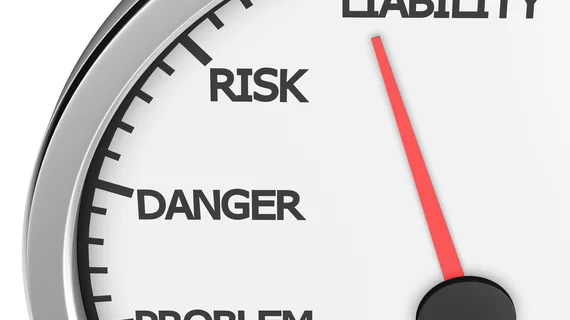Radiology Partners constrained by ‘very high’ financial leverage, execution risk, Moody’s says
Private equity-backed industry giant Radiology Partners is constrained by its “very high” financial leverage, Moody’s claimed in a periodic review shared on Monday.
The El Segundo, California-based organization also faces ongoing “execution risk” stemming from its rapid growth, with challenges including systems integration, financial reporting and people alignment. However, the New York-based investor service also sees cause for optimism, given a few other factors.
“The company's ratings benefit from Radiology Partners' dominant position in an industry characterized by stable business prospects and favorable payer mix,” analysts said in the Dec. 6 update.
Moody’s completed its assessment through a discussion of Rad Partners’ portfolio held on Dec. 1. The review did not involve a ratings committee, nor did the agency modify its B3 designation for RP, denoting debt obligations considered “speculative and subject to high credit risk.”
Analysts previously upgraded their rating for Rad Partners back in July, changing the outlook from stable to positive while highlighting a “significant recovery” in patient volumes. At the time, Moody’s said RP’s debt load totaled some $3.2 billion, due between 2024-2028, including $300 million taken on to acquire three practices. The practice’s liabilities over the summer remained at roughly 8 times its earnings before interest, taxes, depreciation and amortization.
A Radiology Partners spokesman did not immediately respond to a request for comment Monday. One of the largest practices in the specialty, RP employs about 2,800-plus radiologists across 3,400 sites including 140 imaging centers in 33 states
Meanwhile, Moody’s issued two more similar periodic reviews Monday pertaining to other players in imaging:
- Affirming its similar B3 rating for U.S. Radiology Specialists, reflecting the Raleigh, North Carolina, provider’s high leverage and execution risk stemming from its “active” debt-funded acquisition strategy. USRS is concentrated in Texas, North Carolina and Georgia, and benefits from “strong” competitive position in its markets. It also touts “good business diversity,” Moody’s said, offering outpatient imaging and radiology physician services in an integrated manner.
- Maintaining its B2 rating for Los Angeles imaging center giant RadNet, also considered speculative and subject to high credit risk. Moody’s believes the firm is constrained by its geographic concentration in six states, with a focus on California, New York and Maryland. High fixed costs—such as “significant” capital expenditures, interest charges and mandatory loan amortization—also impact RadNet’s outlook. But its ratings are supported by “strong” a competitive position in those primary markets, diversification of revenues, and a solid payer mix.

